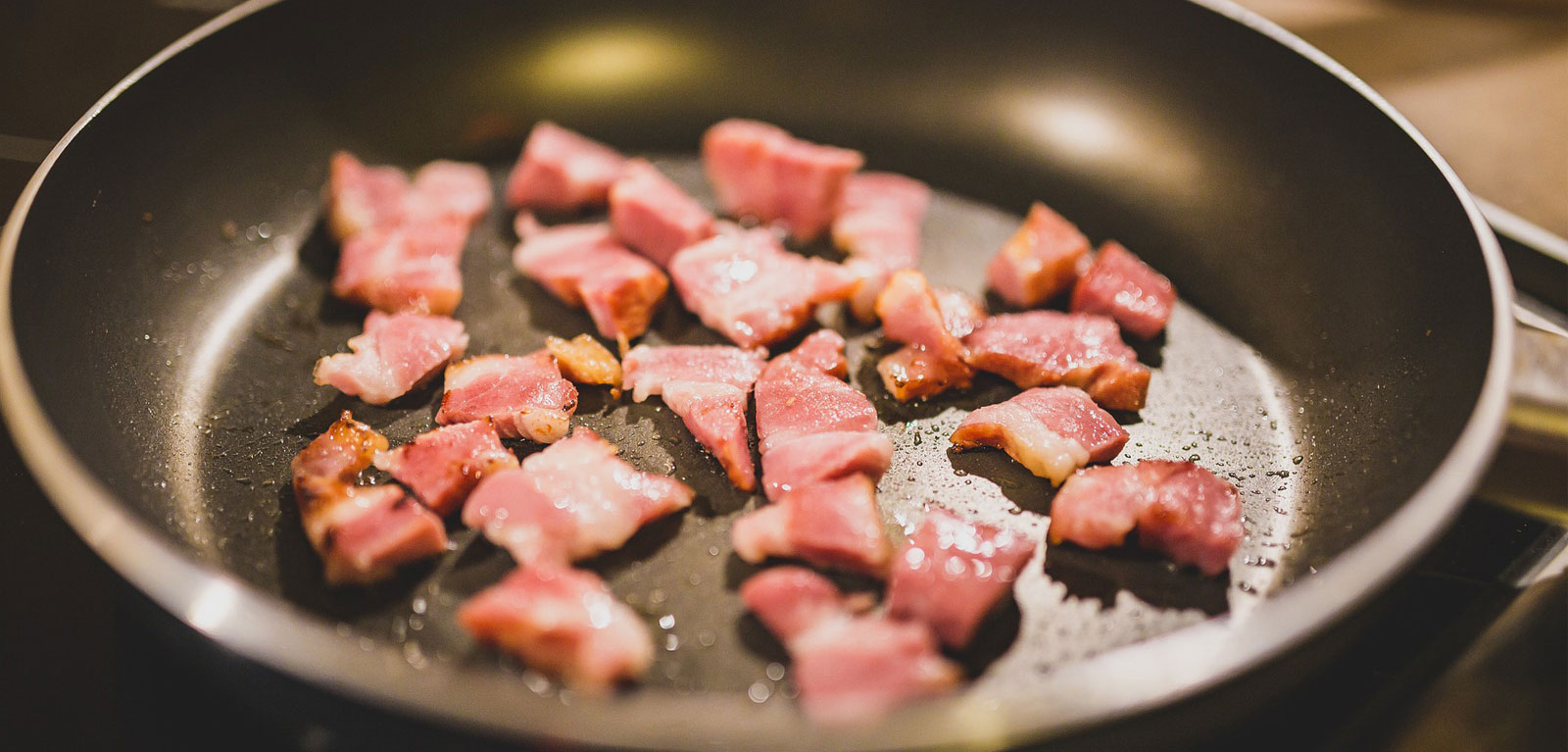Queen’s University Belfast report warns of cancer risk from chemicals used to cure processed meats
Researchers at Queen’s University Belfast have found that nitrates used in the curing process for processed meats can produce chemicals that cause an increased risk of colorectal cancer.

A report published by Queen’s researchers Dr Marie Cantwell and Professor Chris Elliott in the Journal of Clinical Nutrition and Dietetics has revealed that there is a direct link between nitrates used to produce bacon and dangerous nitrosamines.
Nitrate and nitrite are used as additives to improve food quality and protect against microbial contamination. They are sources of N-nitroso compounds (NOCs) which are known carcinogens - a substance capable of causing cancer in living tissue.
However, the report shows that a wide range of factors affect the formation of the NOCs including the amount of nitrite added, meat quality, fat content, processing, packaging and how the meat is handled at home.
Professor Chris Elliott, from the Institute for Global Food Security at Queen’s, commented: “The latest research at Queen’s University Belfast has shown that there is a direct link between nitrites and the formation of nitrosamines. This means that when people consume bacon –which is currently cured with nitrites in the UK – they could be increasing their risk of contracting cancer.
“From a health perspective, it is certainly beneficial to reduce our intake of nitrates and nitrites from processed meat. It is estimated that more than 50 per cent of bowel cancer cases are preventable and lifestyle changes such as improved diet could help.”
The research from Queen’s suggests that green tea polyphenols could be used as a healthier alternative to nitrates and nitrites in processing meat. They can also improve the quality, shelf life and safety of processed meat products.
Professor Elliott added: “It is possible and feasible to use natural alternatives to nitrates and nitrites. For example, green tea polyphenols could be utilised for processing dry cured bacon. These innovative meat products could potentially contribute to a reduction in cancer risk by reducing nitrite in processed meats and should be explored further.”
Media
Media inquiries to Emma Gallagher at Queen’s University Communications Office T; +44 (0)28 9097 5384 E: emma.gallagher@qub.ac.uk
